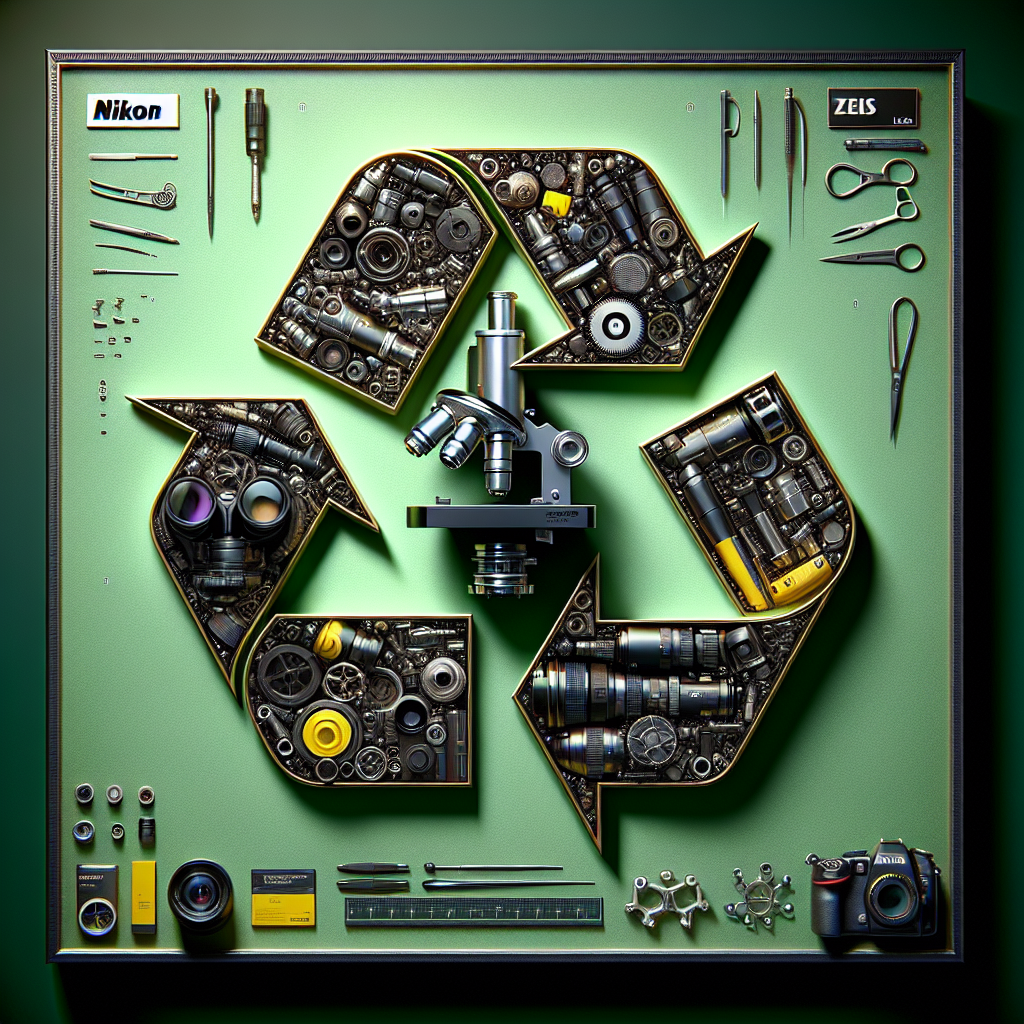Blog Ecobraz Eigre

Recycling Nikon, Zeiss and Leica microscopes
The recycling of Nikon, Zeiss and Leica microscopes requires specific procedures for the correct handling of electronic and optical components, in line with current environmental standards. The process involves disassembly, separation, safe disposal and forwarding for reuse, respecting Brazilian environmental legislation, especially the National Solid Waste Policy (Law No. 12.305/2010).
Applicable Legislation
The National Solid Waste Policy (PNRS), established by Law No. 12.305/2010, establishes guidelines for the management of electronic waste, classifying devices such as microscopes within the scope of equipment that requires proper management to avoid environmental impacts and risks to human health. In addition, Decree No. 10.240/2020 regulates provisions of the same law applicable to the electronics sector.
Features of Nikon, Zeiss and Leica Microscopes
Microscopes from these manufacturers have a complex structure containing metallic materials, optical glass, sensitive electronic components and integrated circuits. The diverse nature of these materials requires specialized techniques for disassembly and separation, ensuring the recovery of reusable parts and the correct disposal of non-reusable elements.
Procedures for Recycling
The first step consists of diagnosing the equipment to identify conditions and recyclable components. Dismantling must be carried out by trained professionals who follow technical protocols to minimize the generation of hazardous waste and avoid contamination. After separating the materials, the electronic components must be treated in accordance with the PNRS standards.
The responsible management of this process mitigates environmental impacts, reducing the volume of waste sent to landfills and preventing the release of toxic substances present in electronic circuits.
Collection and Final Disposal
Microscopes and their discarded components must be sent to specific collection points for electronic equipment. The platform electronics scheduling offers a service certifying the collection and correct destination of these materials, in line with Brazilian legislation and guaranteeing the traceability of the process.
Safe Disposal of Digital Media and Storage
Devices integrated with digital media require special attention in terms of data sanitization using appropriate technical methods that ensure the definitive elimination of the information. Specialized services, available on platforms such as electronics scheduling, guarantee compliance with information security and privacy standards.
Final Thoughts
The recycling of Nikon, Zeiss and Leica microscopes is crucial for sustainability and legal compliance in electronic waste management. Compliance with the appropriate technical standards and processes ensures that environmental impacts are minimized and recoverable materials are recovered, contributing to the objectives of the National Solid Waste Policy.
Sources:

Deixe um comentário
O seu endereço de e-mail não será publicado. Campos obrigatórios são marcados com *